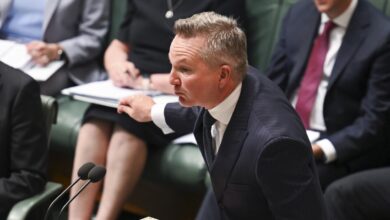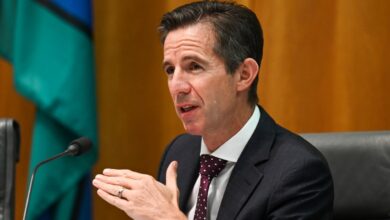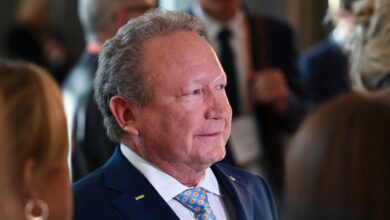‘People want action now’: Jacinta Nampijinpa Price argues Australians still hopeful for practical Indigenous policy advancement despite Voice failure

Senator Jacinta Nampijinpa Price has claimed most Australians remain hopeful for better consideration of issues relating to First Nations people from Government, although in a manner different to the “separatist” constitutional enshrinement proposed under the Voice to Parliament.
The shadow minister for Indigenous Australians reflected on a new study by the Australian National University (ANU) on the failure of the Voice referendum, which found that despite more than nine million voters rejecting the proposal on October 14, an overwhelming majority believe Aboriginal and Torres Strait deserved a voice on key policies and political decisions involving them.
From a survey of 4,200 voters, about 80 per cent indicated support for “formal truth-telling processes” between Indigenous and non-Indigenous peoples – one of two pillars of the Makarrata Commission in the Uluru Statement from the Heart.
The findings provide a significant contrast to the resounding defeat of the Voice referendum, which was voted down by a majority in every jurisdiction other than the ACT.
Professor Nicholas Biddle, co-author of the ANU study, said the results suggested Australians were not opposed to “the premise of recognition” but likely the nature of the “model presented to voters” in the constitutional amendment – an inherently binary question.
Senator Price, however, disagreed with the assessment that people perhaps wished for a renewed model, instead arguing the path to reconciliation could be expedited through the government acknowledging issues that it presently “completely ignores”.
“I think the conversations that I have, overflowing comments and emails and correspondence that I receive, suggests to me that Australians certainly did not want the Voice proposal that the Albanese government had put on the table,” she told Peta Credlin on Tuesday.
“But they do want ways forward, particularly for our most marginalised.
“I don’t agree that they are seeking, sort of, another voice model, but perhaps more so that this government should be listening to those voices that they completely ignore who have answers to a lot of the problems that currently exist… they want a practical way forward for Indigenous Australians and no more separatism.”
The Uluru statement’s third request, aside from voice and truth-telling, was the call for a formal treaty to recognise Indigenous Australians’ sovereignty.
Prime Minister Anthony Albanese, who in his 2022 election victory committed to implementing the statement “in full”, has more recently wavered on the promise in the wake of the referendum loss.
Mr Albanese has said his government was still in the midst of the process of consulting with Indigenous leaders on the next course of action for advancing First Nations policy, but has remained tight-lipped on treaty implementation on a Commonwealth level.
When pressed on the matter by the opposition in Monday’s Question Time sitting, the Prime Minister did not respond directly but insisted Australians had simply voted down the voice, not truth or treaty.
“I indicated at this dispatch box that that wasn’t what people were voting on. That indeed, treaty and negotiation are under way at state level, not at federal level,” Mr Albanese said.
“There is no treaty negotiations under way by the federal government and those negotiations are at different points in Victoria, in Queensland.”
Victoria, South Australia, and Queensland are among the state governments who have pledged to press ahead with all elements of the Uluru Statement, with South Australia poised to commence treaty negotiations as early as January next year.
However, Senator Price, who has been a strong opponent of treaty processes, said the states now stood “a bit wobbly on their legs” in regards to the ongoing negotiations.
“We shouldn’t be negotiating treaties with our own citizens. And I think it’s a bit of a dog’s breakfast if the Prime Minister decides to move forward with this negotiation process,” she said.
“Again, people want action, they want action now. They don’t want it in the form of treaties, this idea of truth telling, we want the truth to be told basically with a lot of the issues that our marginalised face.”
Get Best News and Web Services here







